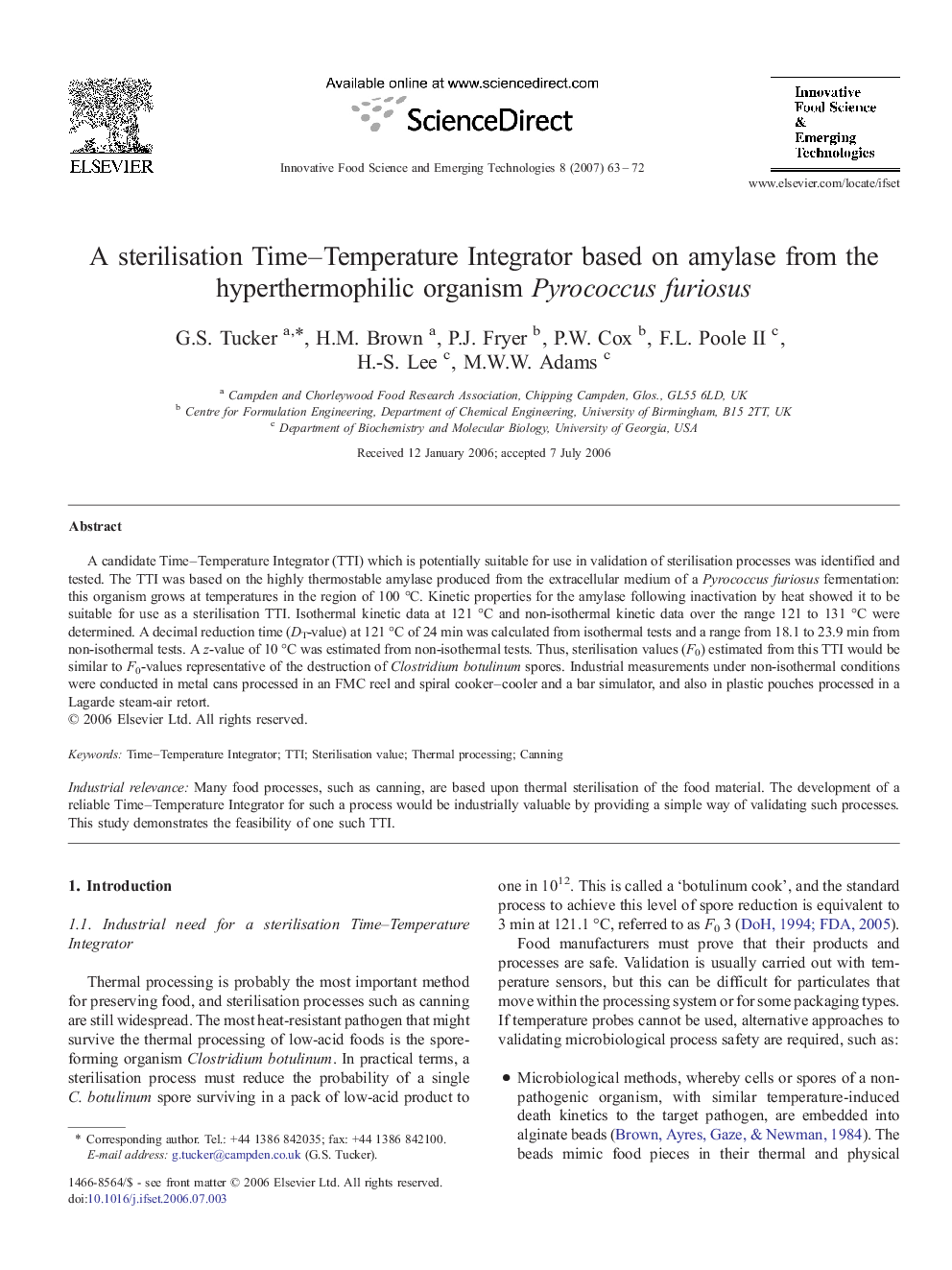| Article ID | Journal | Published Year | Pages | File Type |
|---|---|---|---|---|
| 2087457 | Innovative Food Science & Emerging Technologies | 2007 | 10 Pages |
A candidate Time–Temperature Integrator (TTI) which is potentially suitable for use in validation of sterilisation processes was identified and tested. The TTI was based on the highly thermostable amylase produced from the extracellular medium of a Pyrococcus furiosus fermentation: this organism grows at temperatures in the region of 100 °C. Kinetic properties for the amylase following inactivation by heat showed it to be suitable for use as a sterilisation TTI. Isothermal kinetic data at 121 °C and non-isothermal kinetic data over the range 121 to 131 °C were determined. A decimal reduction time (DT-value) at 121 °C of 24 min was calculated from isothermal tests and a range from 18.1 to 23.9 min from non-isothermal tests. A z-value of 10 °C was estimated from non-isothermal tests. Thus, sterilisation values (F0) estimated from this TTI would be similar to F0-values representative of the destruction of Clostridium botulinum spores. Industrial measurements under non-isothermal conditions were conducted in metal cans processed in an FMC reel and spiral cooker–cooler and a bar simulator, and also in plastic pouches processed in a Lagarde steam-air retort.Industrial relevanceMany food processes, such as canning, are based upon thermal sterilisation of the food material. The development of a reliable Time–Temperature Integrator for such a process would be industrially valuable by providing a simple way of validating such processes. This study demonstrates the feasibility of one such TTI.
